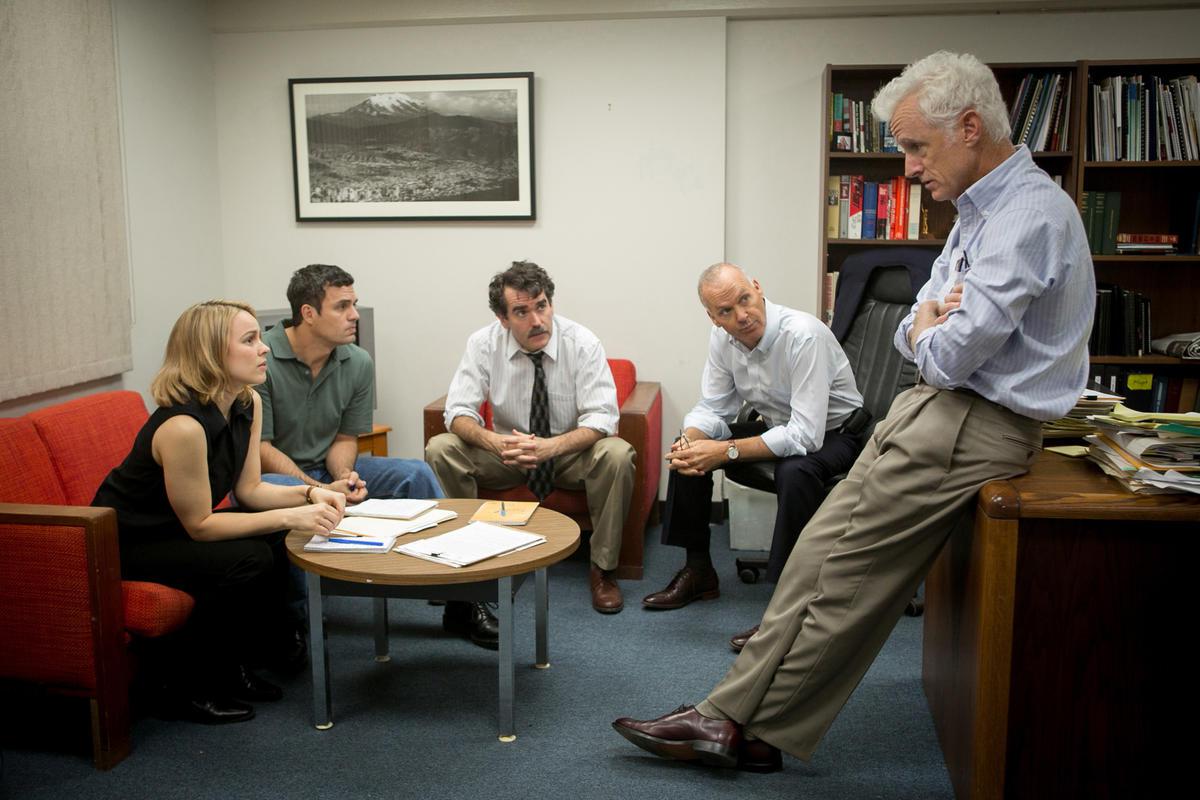Jack Dunn tells me he’s been defamed in the “Spotlight” movie, but there don’t seem to be any Hollywood endings in character assassination lawsuits.
The longtime Boston College spokesman has already lawyered up and asked the movie’s distributors to remove a scene that paints him in an unflattering light. He says his role in the Boston clergy sex-abuse scandal was grossly misstated.
However, he stopped short of saying he would sue Open Road Films, the producer of “Spotlight.” Maybe that’s because it’s too soon to start thinking litigation. Or perhaps it’s because he knows how hard it is to win a defamation case against Hollywood.
“Usually, people in these cases don’t have a good understanding of the First Amendment, and they typically fail,” said Mark Litwak, a famous California entertainment attorney who has experience with silver screen suits. “It’s tougher, too, when they say it’s based on a true story. They’re basically telling the audience they’ve taken some creative liberties.”
Harvey A. Silverglate, a local civil rights attorney, seconded that motion.
“Unless it’s found that the filmmakers had notice early that what they said was false, and then they recklessly disregarded it and didn’t clarify it, I think a filmmaker has an advantage,” Silverglate said. “There’s a sliding scale here, and filmmakers have more leeway than a newspaper or even a documentary.”
“Spotlight” doesn’t pretend to be a documentary, and before the movie starts it tells viewers that the film is based on a true story. That line is “the one thing lawyers get to add to the script,” Silverglate said.
It gives filmmakers a creative license to massage quotes for dramatic effect. It allows them to twist facts in a way that newspapers, nonfiction writers and documentary directors can’t.
“With regard to a dramatization based on a true story, the filmmaker has more flexibility to modify the true facts for the purposes of presentation,” Silverglate said.
Also, with films that are based on a true story, high-powered Hollywood attorneys will typically pore over the script to make sure everything is up to snuff. The last thing they want is an injunction filed after production — a move that could remove the movie from theaters and effectively kill it at the box office.
“Every feature film you see goes through a long process of vetting before they get greenlit,” said Patti Jones, a longtime entertainment attorney in Boston. “You can’t go back after the film is released and make edits based on a person’s protest.”
Then there’s the problem with proving defamation in these situations. Public figures have to prove that the filmmaker made a false statement about them and did so with what’s called actual malice.
That means the person either knew the statement was false or recklessly disregarded whether it was true or not.
That makes proving defamation very, very difficult, and for the purposes of this case, it’s likely that Dunn is — in some form — a public figure.
